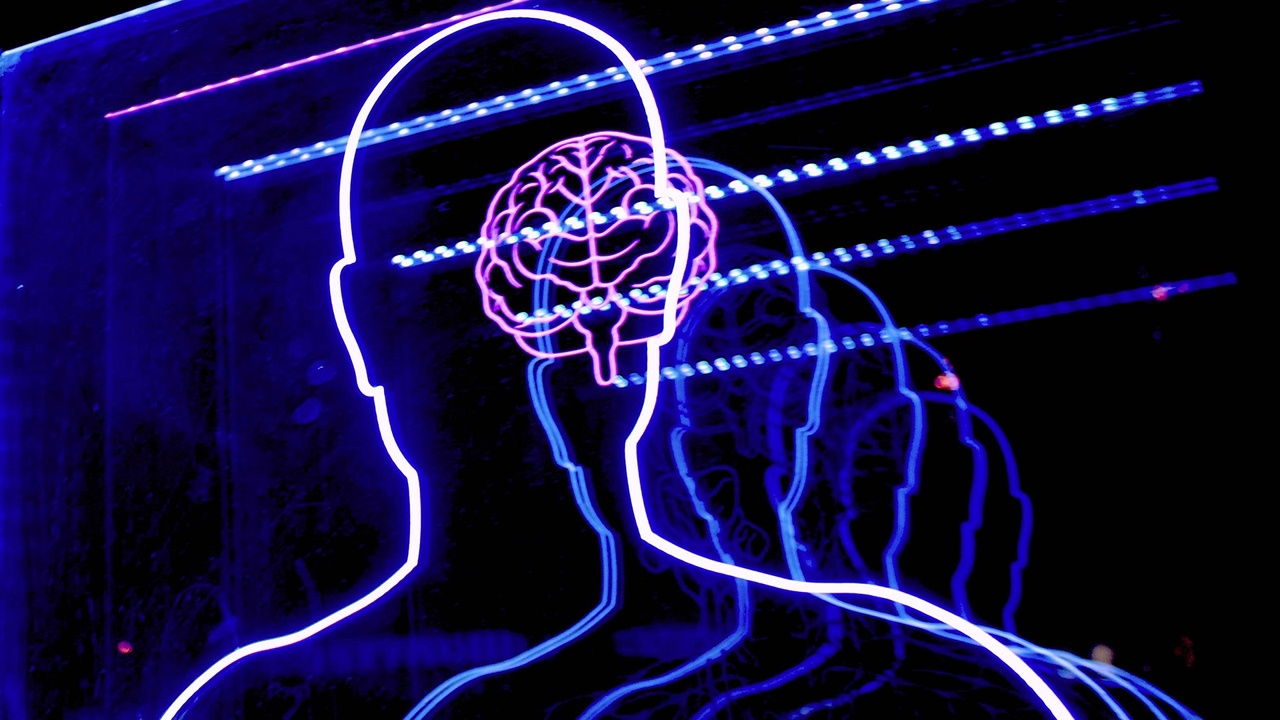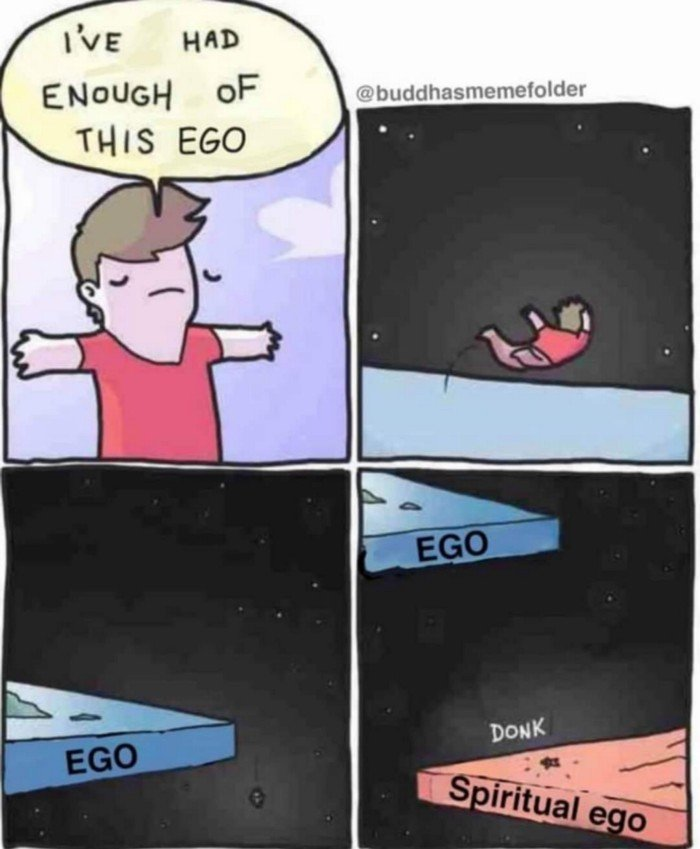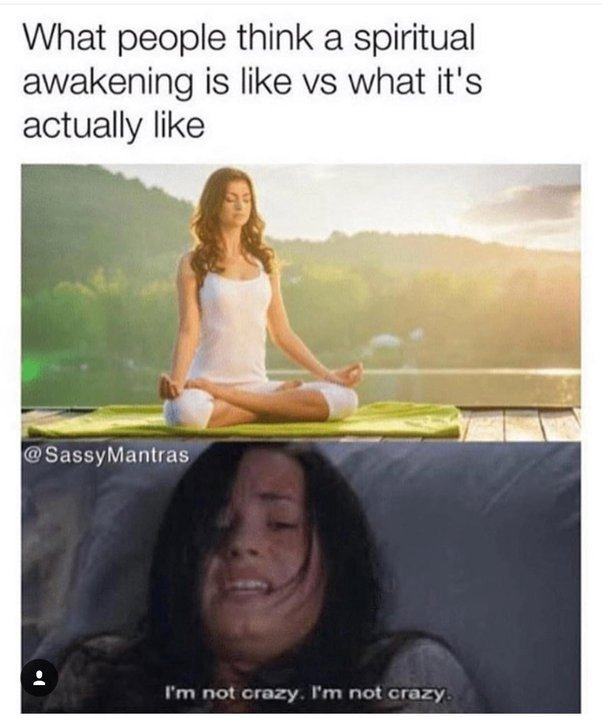Commusings: Improving Our Ecstatic Literacy by Jules Evans
Dec 16, 2022
Hello Commune Community,
What is the color of the sky on a cloudless day? No, this is not a koan. Sure, we can say it’s blue – but that assessment is a social convention, an inter-subjective agreement among humans. Homo Sapiens can only see across a relatively short band of the light spectrum – between ultra-violet and infra-red. And, so, the sky appears “blue” – the label that we’ve given to the wavelength range between 380 and 500 nanometres.
Our species is limited by our innate sensory instruments and science’s genius to enhance them. Our sight, hearing, smell, touch and taste serve our biological imperative for survival because they allow us to perceive threat in the external world. However, in the very same way our senses protect us, they also underwrite a profound sense of separateness. We label everything in the foreground of our external universe and, inherent to this phenomenon, is a self-labeling that differentiates and cleaves us from the “outside” world. This process of self-identification informs the ego, the symbol we give ourselves. We too often confuse this symbol with who we really are and this illusion can contribute to a tremendous amount of suffering.
Eventually, many of us become quite dissatisfied with this feeling of being a separate self. Being in constant competition with the external world is both tiresome and stressful. So, we seek out mystical experiences which are, in essence, a transformation of consciousness from the feeling of a being a separate self to a sensation of being interconnected with the universal web of life. This transmutation requires a transcendence of our five senses and a cultivation of a broader integrated consciousness or ocean mind, a state in which we feel like a wave that briefly crests and then is subsumed back into the greater sea.
Psychedelics are all the rage right now. And it should not be surprising. The ego does not make us happy. Comparison, they say, is the invisible thief of joy. Psychedelics can help foster communication between different and disparate parts of the brain that can elicit a kind of floodlight awareness, a feeling of inter-being. However, set and setting are paramount in the administration of psychedelics.
Thankfully, we have the brilliant Jules Evans to guide us through the forest of this complex topic.
Here at [email protected] and tripping over myself on IG @jeffkrasno.
In love, include me,
Jeff

• • •
Improving Our Ecstatic Literacy
By Jules Evans
I have always been drawn to altered states of consciousness and ecstatic experiences, ever since my friends and I experimented with psychedelic drugs in our teens. We had some wonderful, mystical moments, but it could also be dangerous and damaging: Some of my friends died (of heroin overdoses) or developed chronic mental illness.
As for me, I had a bad LSD trip when I was 18 that left me struggling with PTSD and social anxiety for years. What helped me finally recover was a near-death experience at 24. I skied off the side of a mountain, fell 30 feet, and broke my leg badly. The moment I landed, I felt immersed in a white light and filled with bliss. I knew, instantly, there was something in me that could never be broken or harmed — by a skiing accident, a bad trip, or anything else. That weird ecstatic experience helped me recover from the PTSD.
As a result, I have a strong sense of how ecstatic experiences can alter our minds and lives for better and for worse, and a strong desire to learn more about these experiences — indeed, I’m currently involved with the first ever study on what helps people recover from difficult psychedelic experiences. (If you want to contribute to our study, please fill in our survey.)
After four centuries of marginalizing and pathologizing ecstatic experiences, western cultural attitudes are changing. According to Gallup, the number of Americans who say they have had one or more mystical experience rose from 20% in 1962 to 40% in 2008, and I’m sure it’s even higher now, thanks to the widespread popularity of meditation, yoga, psychedelics and other spiritual practices.
I welcome this shift in our attitude to the ecstatic. I always felt my own culture – the UK – was far too closed to altered states of consciousness. However, I also feel western culture urgently needs to improve its cultural resources to help people make sense of the ecstatic.
Ecstatic experiences can be healthy and healing, but they can also be dangerous, both for individuals and for their societies. We need a more mature cultural understanding of ecstatic experiences, to support individuals’ psychology and the health of the body politic.
To that end, here are ten basic principles to help people make sense of ecstatic experiences:
1. Ecstatic experiences are common and human
An ecstatic experience is a moment where the mind goes into an altered state of consciousness and one’s ordinary sense of self changes. Historically, that tended to involve a feeling of ego-dissolution (ecstasis in ancient Greek literally means ‘standing outside’) and a feeling of ‘enthusiasm’ (from the Greek enthousiasmos, meaning a god or spirit goes into you). The anthropologist Erika Bourguignon found that 90% of human societies had institutionalized rituals for the attainment of altered states of consciousness. Humans seek ecstatic experiences for meaning, healing, religious worship, social connection, and fun.
Most cultures have seen ecstatic experiences as potentially dangerous and disruptive, hence they devised rules and rituals to manage them for the good of individuals and society. Western culture, unusually, sought to marginalize and pathologize ecstatic experiences in its shift to a materialist worldview in the 17th century. Ecstatic experiences were associated with delusion, madness and psychosis. But we still keep on having them.
I conducted an online survey in 2016, asking if people had ‘ever had an experience where you went beyond your ordinary sense of self and felt connected to something bigger than you.’ Over 300 people replied: 84% had such an experience, but 72% agreed that ‘there is a taboo against talking about such experiences in western culture.’ There shouldn’t be a taboo anymore – ecstatic experiences are normal and nothing particularly special. Indeed, every night we go into a non-ordinary state of consciousness when we dream.
2. Ecstatic experiences are neither good nor bad in themselves
They are amoral. They have no essential moral content. They are a range of psychological states, and these states can be put to all kinds of different moral and ideological ends. This point was well made by the philosopher Slavoj Zizek, who explored how Beethoven’s ecstatic Ode to Joy was used by a whole variety of political ideologies, from the EU to Nazi Germany.
3. Having an ecstatic experience doesn’t necessarily mean you’re special, holy or spiritually advanced
Ecstatic experiences are normal and common. Some personality types are more prone to them. Having an ecstatic experience or many ecstatic experiences does not mean you’re special, holy or spiritually advanced, and not having such experiences doesn’t mean you’re missing out.
It can feel like you’re special after having an ecstatic experience – that’s one of their allures. In some cultures, certain types of mental states are taken as proof of your spiritual advancement. However, one of the risks of ecstatic experience is ego inflation – thinking you’re uniquely blessed, divinely chosen, elect, highly evolved, or even the Messiah. This risk is particularly acute in a culture like New Age spirituality, where spiritual literacy (i.e. a passing familiarity with terms like samedhi or jhana) far outstrips spiritual maturity.

4. Having an ecstatic experience in someone else’s presence doesn’t mean they’re holy or spiritually advanced
One of the biggest triggers for ecstatic experience is the expectation of having an ecstatic experience. That’s why people who go to see a spiritual teacher with the expectation of an ecstatic encounter may have an ecstatic encounter, which they then take as proof of the holiness or even supernatural power of that teacher. In addition, teachers may develop techniques to enhance their own charisma and the suggestibility of their followers, such as eye-staring, sleep deprivation, hypnotic techniques, the use of psychedelics, and so on. History is full of examples of gurus whose followers thought they were highly spiritually advanced, and who often experienced ecstatic experiences in their presence, yet they turned out to be abusers, fakes, swindlers and criminals.

5. Ecstatic experiences aren’t necessarily supernatural
It’s impossible for the sciences or humanities to say, let alone measure, to what extent an ecstatic experience really is from God, the spirit world or some sort of higher intelligence. Suffice it to say that most mature religious traditions suggest that not all ecstatic experiences are necessarily from God or the spirit world. Christian theologians like Jonathan Edwards, who wrote during the 18th century ecstatic movement known as the Great Awakening, came to the conclusion that some ecstatic experiences are the result of psychology – social contagion, for example, or an over-excited imagination. There are a variety of different possible explanatory frameworks for ecstatic experience, some supernatural and some naturalist. Some naturalist frameworks still recognize potential benefits to ecstatic experiences, without thinking they involve God or the spirit world.
6. Your ecstatic insights aren’t necessarily correct
They can feel totally true and revelatory. Indeed, that’s one of the characteristics of ecstatic experience, as William James pointed out. They have the feeling of having revealed grand truths. And sometimes, the truths or insights revealed in ecstatic experiences have stood the test of time, and have proven of sustained value for the arts, sciences or culture. However, there are also countless examples of ecstatic experiences THAT proved to be unreliable or simply nonsense. Oliver Wendell Holmes Senior once experimented with ether to try and discover ultimate truths. He wrote:
I once inhaled a pretty full dose of ether, with the determination to put on record, at the earliest moment of regaining consciousness, the thought I should find uppermost in my mind. The mighty music of the triumphal march into nothingness reverberated through my brain, and filled me with a sense of infinite possibilities, which made me an archangel for the moment. The veil of eternity was lifted. The one great truth which underlies all human experience, and is the key to all the mysteries that philosophy has sought in vain to solve, flashed upon me in a sudden revelation…As my natural condition returned, I remembered my resolution; and, staggering to my desk, I wrote, in ill-shaped, straggling characters, the all-embracing truth still glimmering in my consciousness: ‘A strong smell of turpentine prevails throughout.’

7. Ecstatic experiences are ambiguous
Ecstatic experiences are ambiguous and paradoxical. They can both feel like a flood of meaning, and leave people trying to make sense of them for years. They can move from euphoric to terrifying in minutes. They can feel both enlightening and bewildering. They are ‘both-and’ rather than ‘either-or’. A mature culture leaves room for this ambiguity and recognizes that something in these experiences defies easy interpretation or analysis.
Western culture has tended to take a rather immature, black-and-white view of ecstatic experiences in the last 300 years, seeing them either as wholly delusional or wholly holy. One still finds this immature attitude in charismatic churches, for example, where holy spirit encounters are seen as totally good and their meaning totally transparent. Such experiences are rapidly converted into dogmatic testimonials. One sees something similar in the emerging science-religion of psychedelics – people’s experiences are seized on and rapidly converted into dogmatic testimonials for the movement. All ambiguity is collapsed into soundbite headlines like ‘I’ve never felt such joy’ or ‘the most meaningful experience ever.’ Psychedelic science even tries to measure how ‘complete’ a mystical experience was by using a multiple choice questionnaire, giving experiences a score out of ten.
Even in religious cultures that see ecstatic experiences as potentially revelatory, it is still understood that they are ambiguous, and one should be careful before interpreting them too quickly or too literally. As the religious studies scholar Jeffrey Kripal has suggested, ecstatic experiences can be seen as texts, with multiple levels of meaning and symbolism. A mature culture recognizes multiple possible levels of meaning in an ecstatic experience and is wary of collapsing that ambiguity into one simple interpretation.
8. Ecstatic experiences aren’t always healing
The emerging science-religion of psychedelics, like Christianity, has made very strong claims about the healing and saving power of the psychedelic experience, leading countless people to look to these experiences to rescue them from their mental, emotional and existential problems. And for some people, ecstatic experiences (whether through psychedelics or other avenues) can be genuinely healing and life-changing. But it’s not always the case. Ecstatic experiences sometimes don’t totally ‘heal’ a person from, say, PTSD or depression. Or they may only give temporary release from habitual ego patterns, which then subsequently re-assert themselves.
Most religious traditions suggest that occasional ecstatic experiences need to be followed up by daily practice of some kind, to turn altered states into altered traits of personality. Even then, it might not ‘work’ in the sense of healing you of all your problems.
Occasionally, ecstatic experiences can cause mental health problems, triggering temporary or long-term psychosis, for example, or leaving a person feeling more bewildered, confused and disconnected from consensus reality than before the experience. Some of these more difficult ecstatic experiences (sometimes called ‘spiritual emergencies’ or ‘dark nights of the soul’) can be resolved with therapy or other methods (see my book Breaking Open: Finding a Way Through Spiritual Emergency). But not always.

9. There are many routes to ecstatic experience, and your preferred route is not necessarily the best or only one
Ecstatic experiences can open one’s mind and alter one’s belief, but they can also close one’s mind and lead to dogmatic exclusivism – your route to ecstatic experience is the best route and even the only route. Accept no substitutes. This dogmatic exclusivism is often exacerbated, of course, by religions and churches, who seek to establish monopolies on ecstasy, like the Christian emperor Theodosius, who closed down all non-Christian cults throughout his empire. Even today, one sees a form of psychedelic exclusivism in some psychonauts – only psychedelics grant a true revelation of the divine, and perhaps only their preferred drug grants a true revelation. Everyone else’s non-pharmacological route to ecstatic experience is a poor and phony substitute. No. There are infinite routes to ecstatic experience. Some routes may be easier or more reliable than others, but that doesn’t make them necessarily better or more truth-revealing.
10. The meaning of life is not necessarily to have as many or as powerful ecstatic experiences as possible
Both in Christian and New Age cultures, one can see a tendency to fetishize ecstatic experiences, to see them as the ultimate meaning and goal of life, and to try and consume as many of them as possible. This is also a heritage of the Romantic movement, which placed a huge value on occasional ecstatic experiences.
This excessive emphasis on ecstatic experiences can be unhealthy, and lead to a denigration of ordinary life. There is such a thing as addiction to ecstatic experiences. It can also be profoundly selfish. A mature culture sees ecstatic experiences as normal and human moments, which may occasionally be intentionally sought for purposes of healing, meaning, connection or fun. An immature culture is obsessed with such experiences and places too high a value upon them.
Jules Evans is a philosopher and wisdom teacher, based at Queen Mary, University of London. He's the author of Philosophy for Life and Other Dangerous Situations (2012) and The Art of Losing Control (2017) and co-editor of Breaking Open: Finding a Way Through Spiritual Emergency.
Leading teachers, life-changing courses...
Your path to a happier, healthier life
Get access to our library of over 100 courses on health and nutrition, spirituality, creativity, breathwork and meditation, relationships, personal growth, sustainability, social impact and leadership.
Stay connected with Commune
Receive our weekly Commusings newsletter + free course announcements!


